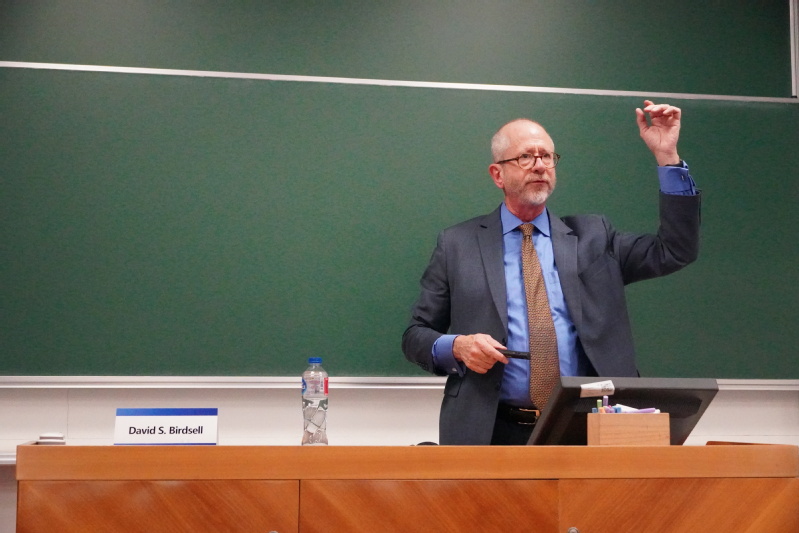
On October 28th, 2019, the 19th lecture of the Fudan-LSE lecture series was successfully held in Room 406 of the West Sub-building of Guanghua Towers at Fudan University. The lecture was organized by the Institute for Global Public Policy (IGPP) of Fudan University and chaired by Professor Yijia Jing, Dean of IGPP. David S. Birdsell, public communication specialist and professor at the Marxe School of Public and International Affairs of City University of New York, USA, gave a lecture with the title “Explaining Political and Social Polarization in the United States: Different Experiences, Different Regions, Different Media”.
Professor Birdsell is the Dean of the Marxe School of Public and International Affairs at the City University of New York, USA, and an expert in the field of public communication. He received his B.A. and M.A. degrees from the University of Virginia and his Ph.D. from the University of Maryland. His research interests focus on the links between communications, technology and civil society. Professor Birdsell holds many other positions, including Board Chair of Governance Matters and Director of the New York Federal Statistical Research Data Center (NYRDC), a board member of the New York Council of Nonprofits, and a fellow of the National Academy of Public Administration (NAPA).

Professor Birdsell began the lecture by exploring current trends in American politics and society in general, focusing on several aspects such as race, ethnicity, age, education, income, and public trust in the media. He used several charts to illustrate the status quo and the trends of the American society, including the declining proportion of white people in the US population, a much higher average age of whites compared to minorities, changes in the educational level of the population and its relationship to income, and changes in the public’s trust in the federal government in different contexts.
Regarding media consumption habits in the US, Professor Birdsell argued that even though television still dominates the media market, it is in fact declining, while online media is gaining popularity. Overall public trust in the media is low and continues to decline. All these have had a profound impact on politics and society in the US. Using the 2016 US presidential election and the 2018 US midterm elections as cases, he analysed the differences in various types of data between the two elections, using variables such as ethnicity, income, education, and gender. He further compared the data with previous elections and illustrated several emerging characteristics of US politics and society with tables and charts. Based on this research, Professor Birdsell offered some prospects for the coming 2020 presidential election.

Professor Birdsell finished his presentation with several important comments, including that the exercise of citizenship in the US varies according to age, race, educational background and media habits; that Donald Trump has both strengths and weaknesses; and that it is too early to be bullish about any Democratic candidate as the party’s cohesion remains a problem and there is no clear winner in the primary election. At the end of the lecture, Professor Birdsell interacted with students and faculty members, engaging in a series of discussions on specific issues related to this topic.




